10 stories from Oxfam’s work that will warm your heart, just in time for Valentine’s Day
For more than 80 years, working in over 80 countries, we at Oxfam have witnessed a lot: movements for justice, major disasters and the rebuilding that follows, and massive forced migrations. We’ve seen it all, but there’s one thing we’ve observed that we don’t talk about as much as we should. That’s love.
We don’t mean Hallmark card love. We’re talking about real moments fueled by determination and hope for a better, more equal future. You can see it in the mother who goes hungry to make sure her children get enough to eat, the refugee children who form soccer teams in camps, and the women’s groups that form to build confidence and help women heal from shared traumas.
Here are 10 examples of love we’ve had the pleasure to witness in our work:
Fishing together

Phon Tra, 53, and Vant Chen, 53, are a married couple in Cambodia who have been fishing together on the Seri Sophoan river for more than 20 years. Tra lays the net while Chen paddles the boat, removes fish from the net when it is hauled into the boat, and later cleans the fish. In that time, they have watched as the water level has declined and fish have died off from changing weather patterns and pollution.
Tra and Chen belong to a community fishery that Oxfam is working with to help families adapt to climate change. While the Oxfam project aims to make it easier for fishing families to support themselves, Tra and Chen are raising their sons, ages 16 and 21, to follow their dreams and seek out different livelihoods. “Some days we make a good living, on others we just survive,” said Tra. “…We’ve done it for a long time because we have no other thing to do.” Their younger son plays soccer and aspires to be a famous football player while their older son is pursuing a career in IT.
Providing a safe space through sports
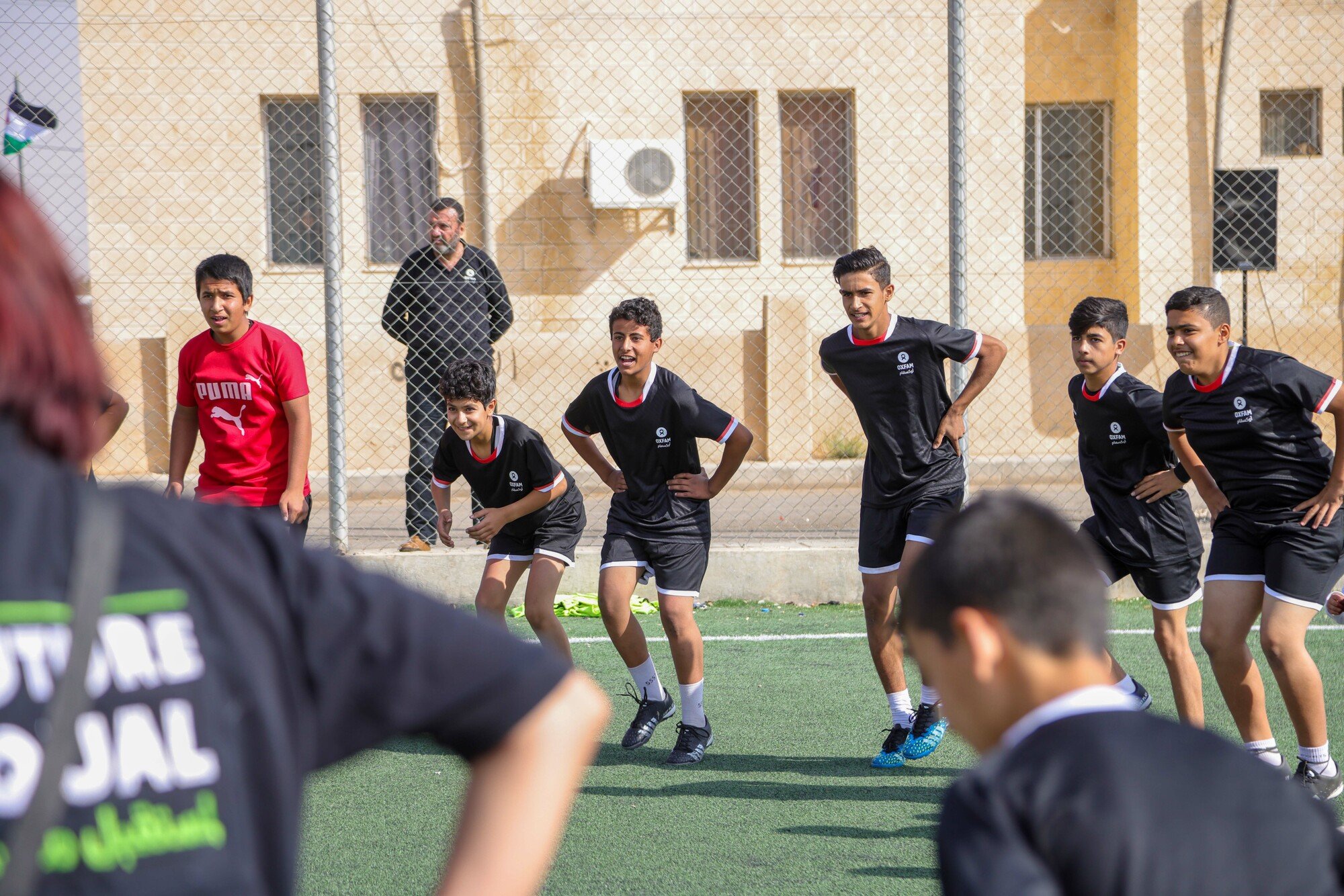
"Badia's vultures" soccer academy in Um Al-Jummal, in the Mafraq governate, Jordan, is a project birthed from a love for sports. More than 55 children ranging from ages six to 17 participate in the academy, where training is offered for free. The coaches—who volunteer their time—believe that providing a safe space for young people is vital to steering them away from drugs and violence, as well as boosting their skills, but resources are limited.
Oxfam has been operating in this region of Jordan since 2017. “The coaches approached us for support, and we saw a great opportunity to use this platform to connect with young people and the local community through football," said Asma'a Thekerallah, Oxfam’s project manager in Mafraq. The football academy offered an opportunity for Oxfam to engage with young people about the importance of taking care of the environment, through an activity they are passionate about. Partnering with the academy to provide supplies, such as shoes, jerseys, and protective gear, “meant that we connected with the kids and the community much better," said Thekerallah.
Teaching students persistence

Jennifer is a teacher at Primary School, Palabek Refugee Settlement, Uganda. During the COVID-19 lockdown, she said her students became moralized, many losing interest in learning. With schools closed, some learners repatriated back to South Sudan without finishing their education.
At the start of lockdown, she and her colleagues distributed educational materials to students to encourage them to learn at home. When it was safe to do so, they began organizing the students into small groups that met outside to support them in their self-study.
“I became a teacher because of my love for children my love of education,” said Jennifer.
Finding community

Women’s empowerment groups play a central role in a program known as Asia Community Disaster Preparedness and Transformation (ACT), which helps vulnerable communities in Nepal, the Philippines, Bangladesh, and Indonesia adapt to a changing climate. Oxfam and partner organizations SIKAT, NEEDS, CIS Timor, Jago Nari, SKS Foundation, and Wave Foundation supported these women in forming groups and provided trainings on everything from disaster preparedness to women’s rights to financial literacy.
The women’s groups have brought about profound shifts in the roles and status of women in their families and communities. Husbands are now helping out around the house, women are becoming effective and respected activists, and the threat of gender-based violence is receding. “There used to be domestic violence here,” said Kaushila Sunar. “We have made the community violence-free.”
Fighting for justice
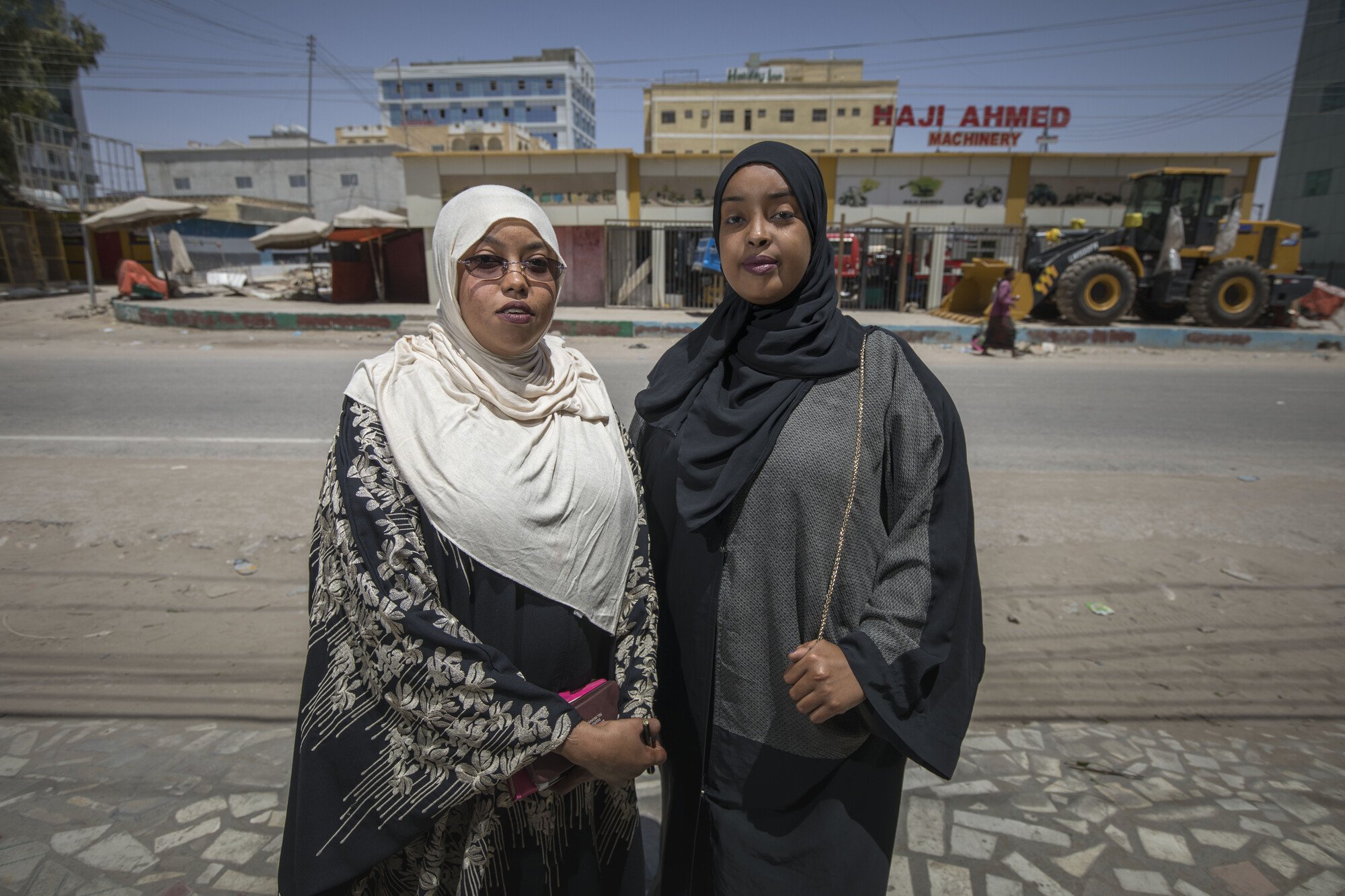
Amina Hassan Osman and Nasrin Abdishakur are two lawyers determined to end impunity for cases of violence against women in Somaliland. Representing survivors from rural areas, Osman was struck by how many cases were resolved through customary law rather than the justice system “In rural areas …. male leaders of a household come together and negotiate the resolution of the conflict or crime,” she said. The outcomes seldom do justice to the female victims.”
Osman and her colleagues received intensive training from the Strategic Initiative for Women in the Horn of Africa (a network of organizations that receives supported from Oxfam). With her newly acquired skills, Osman said she feels more confident defending survivors of gender- based violence. “I want to show that we are very capable of working as lawyers,” she said. “My ambition is to become a Member of Parliament. I want to campaign for a family law and for a strong sexual offenses law.”
Sharing a vision for the future
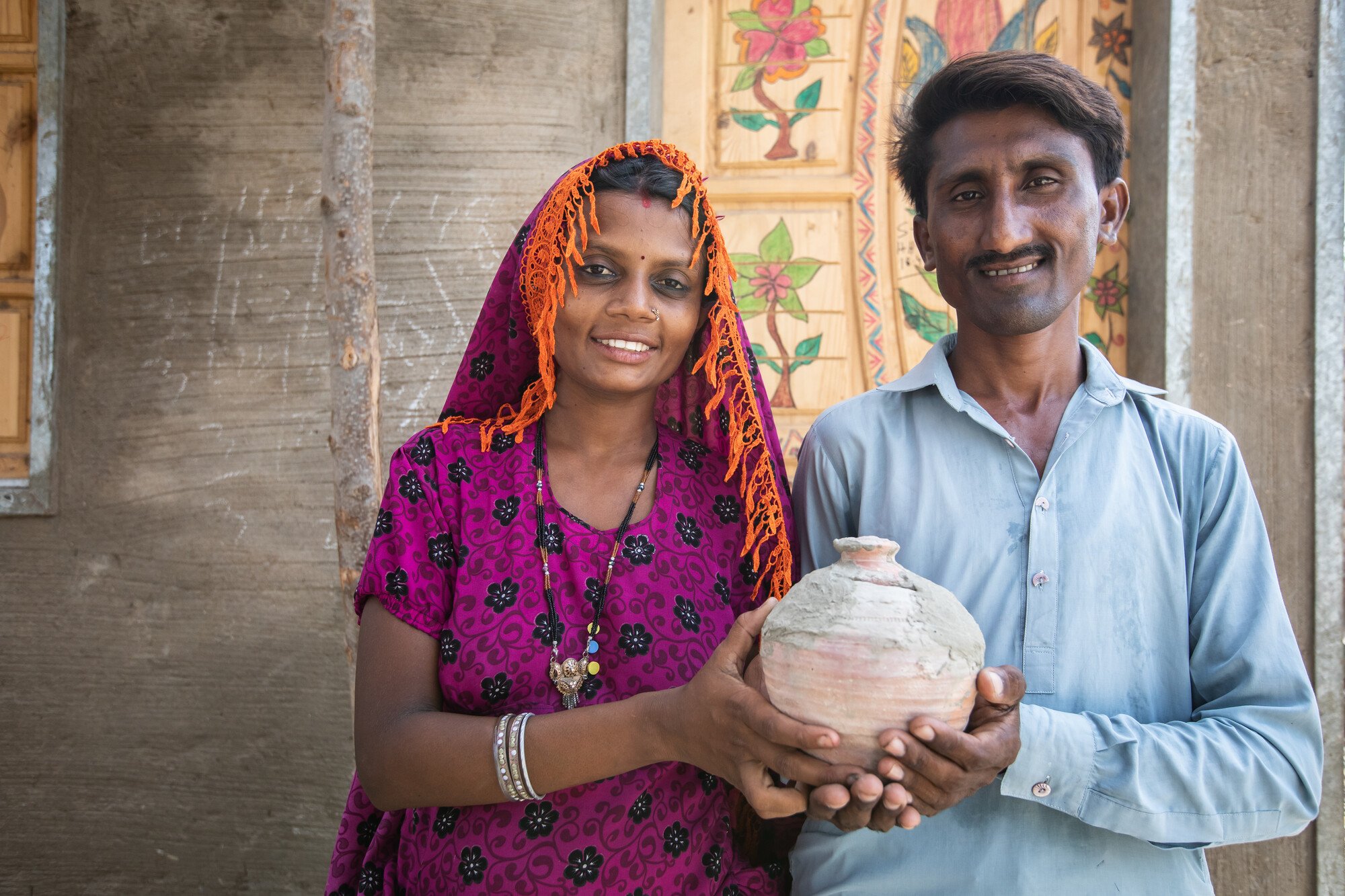
Jamna and Vishnu, a married couple in Laloo Kolhi, Pakistan, became the first people in their village to upgrade from a mud house to a brick house. They credit this transition to a Vision Journey they participated in through a gender action learning training offered by Oxfam partner Laar Humanitarian and Development Program. They said the exercise of drawing out their vision for the future helped them find a path forward to achieving their dreams. Originally farmers, Jamna and Vishu were both highly educated and when a school opened in their village, they both decided to become teachers. “We were able to save and achieve our dream of making a solid house so we are no longer living in a mud house,” said Jamna. It took us two years to achieve this dream.”
Healing from the trauma of war
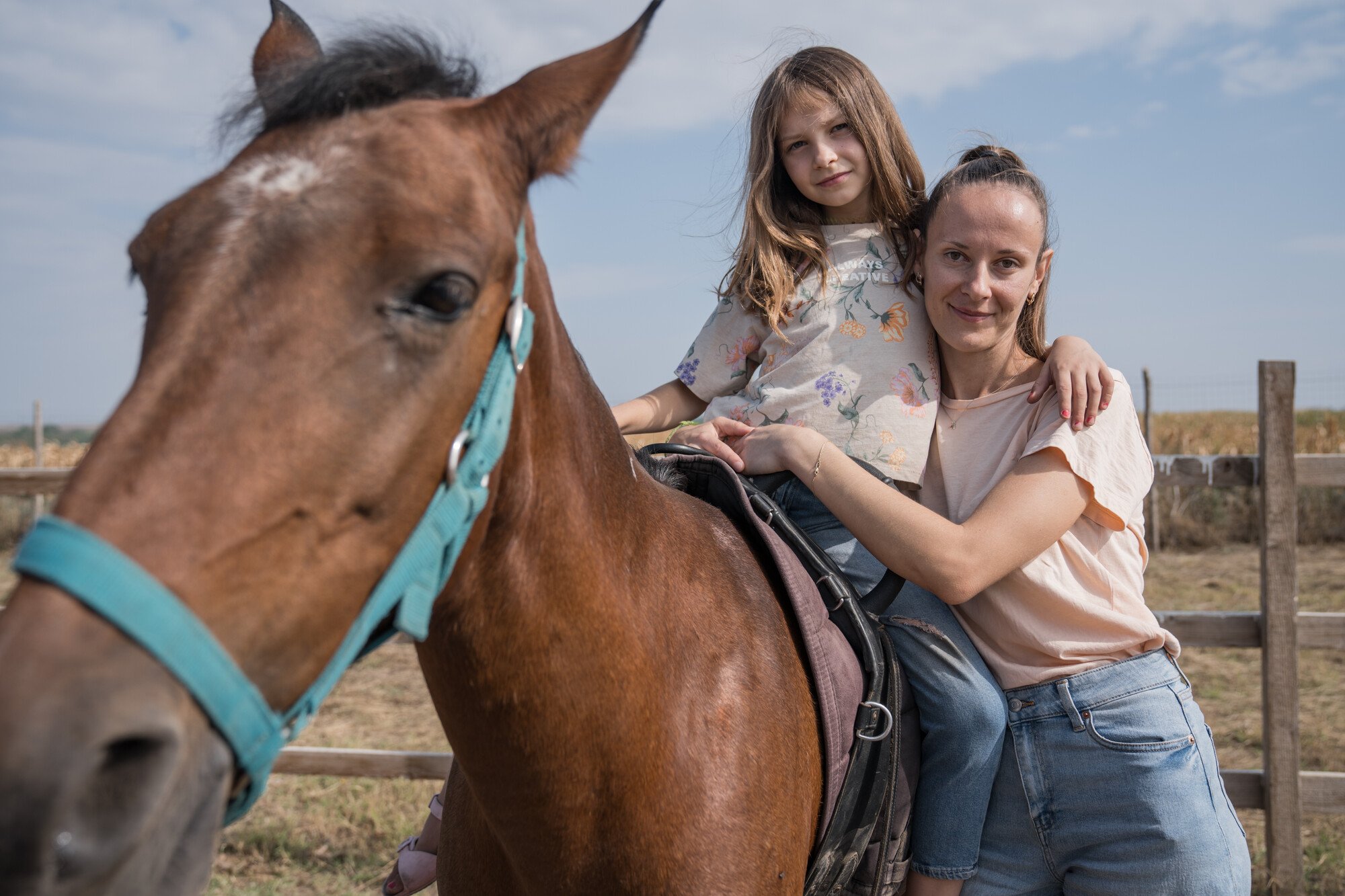
Alina, a circus acrobat from Odessa and her 9-year-old daughter, Tina*, are Ukrainians refugees living in Romania. They attend sessions at Oxfam partner Kavalkada, where Ukrainian refugee children can play, learn new skills, make friends, and take part in horse-riding therapy. “All the children are waiting for the sessions, and they are happy here, they are comfortable,” said Aline. “And when they play … they forget about everything, and they play like at home.”
Rekindling a love for education

Indrawati, 29, is a child marriage survivor. At the age of 16, she was forced to drop out of school and become a housewife. In 2021, she learned about an organization called Gema Alam that was training women in business management and financial literacy. Gema Alam is a local partner in Oxfam’s Indonesian Women in Leadership Project, which aims to support national and community civil society organizations to promote gender equality by increasing women's economic empowerment, promoting women's political participation, decision making and leadership, and reducing violence against women and girls.
Through Gema Alama, Indrawati gained the confidence to become a forum leader, treasurer of the Family Welfare Empowerment Association committee in PKK, and a leader in her village where she is now able to use her voice to speak out against child marriage. She is running a laundry business and has resumed her education, studying economics at university.
Saving for the future generation

Mario Amaral, 37, lives near Suai, Timor-Leste with his wife Joanna and four sons, including Alfredo.* He joined a Saving for Change group in 2017, and the introduction of a shared seed bank between the seven members ensured that their families had greater access to food and savings. “Every week, we all save two dollars and discuss what we are going to do in the future with the money,” said Amaral. So far, he has been able to install a solar panel and tin roof on his house and provide for his children’s education. “I only finished primary school, so it’s important for my children to have the chance to go to school,” he said. “My dream is to become a business man, maybe I can buy 20 sacks of rice and then sell them to people around here. “I believe that if we save little by little then my dreams can be realized.”
Raising a feminist son
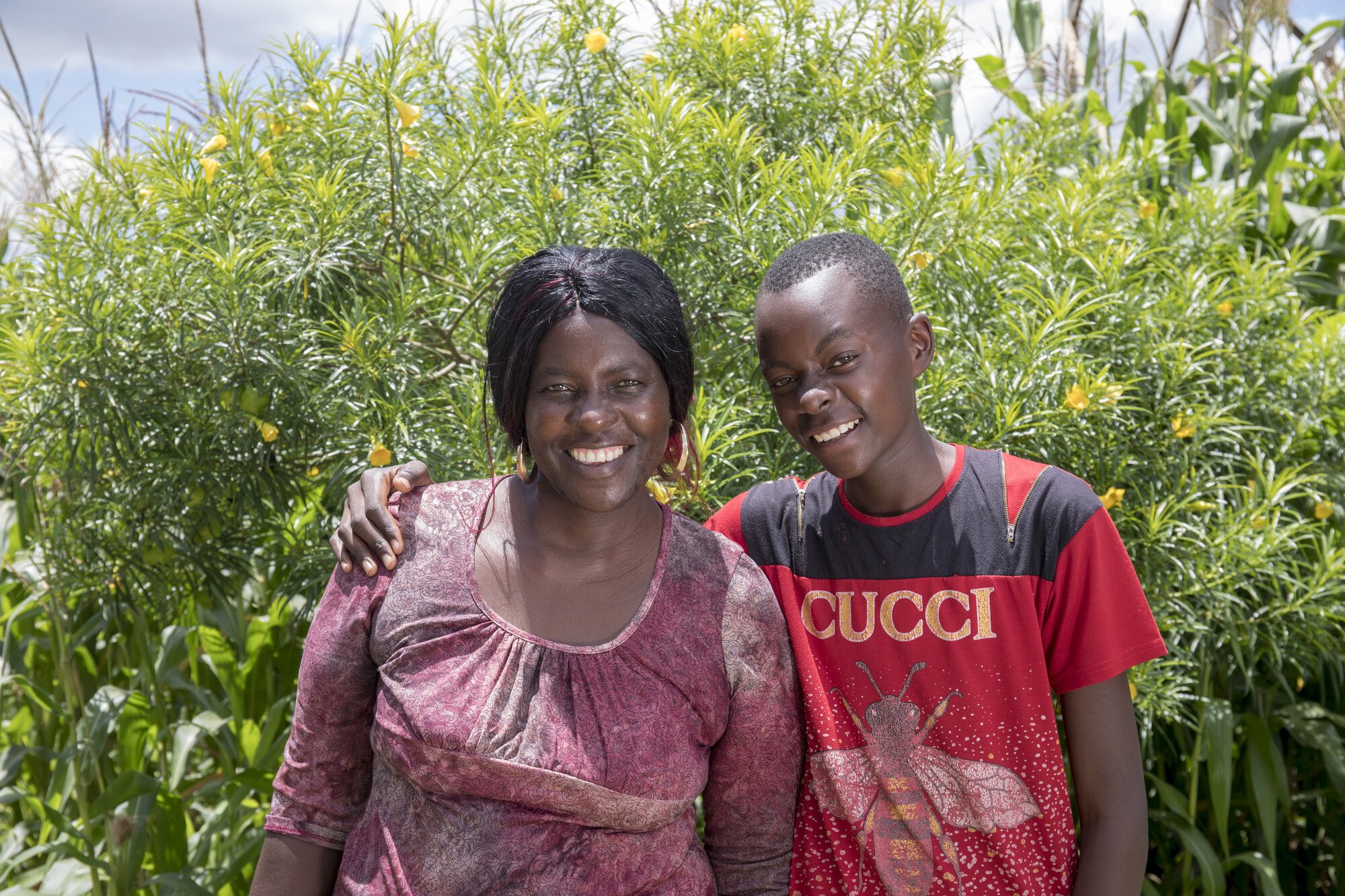
Catharine is a single mother and jewelry maker living in Harare, Zimbabwe with her teenage son Tino. A volunteer in her Oxfam’s We-Care program, she raises awareness in her community about the benefits of women and men sharing care tasks. Catherine began these conversations at home, teaching her son to clean, fetch water, and cook—tasks that are traditionally handled by women in their community. Tino enjoys cooking so much that he is thinking about becoming a cook. “When I leave school, I want to be a cook because I enjoy cooking all the time. My mum taught me that,” said Tino. “So, I [want to] open my own restaurant, and then yeah, cook for people.”
*Names changed
